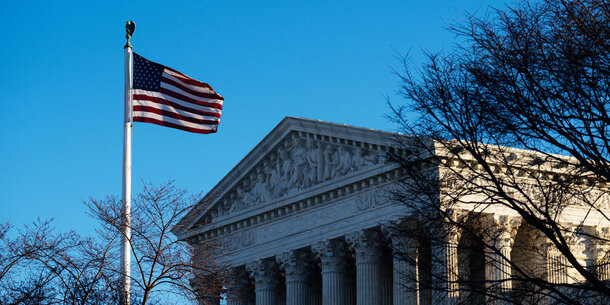In the Trump administration’s first week, the White House ordered a “temporary pause” on billions in congressionally approved funding, disrupting critical services ranging from education and health care to scientific research. The ensuing chaos led multiple states and federal grantees to sue, setting up legal fights over the breadth of executive power.
Federal courts have temporarily blocked the categorical freeze as unlawful because presidents cannot arbitrarily halt funding that Congress has already approved, restoring some of the money for now. Still, the future is uncertain for the many who rely on this funding, including those at the forefront of science, technology, and innovation.
The early directive is one of several ways the administration is destabilizing support for scientific research. For example, since taking office, the executive branch has attempted to terminate more than 7,000 grants from the National Institutes of Health and the National Science Foundation — the primary drivers of funding for biomedical research and science and engineering research, respectively. Those grants collectively surpass $3 billion, according to Grant Witness, which is tracking the termination of research agency grants under the Trump administration. The administration has also proposed far deeper cuts of $44 billion in funding for research and development in the coming fiscal year.
Arati Prabhakar, who most recently served in President Biden’s cabinet as his chief advisor for science and technology and director of the White House Office of Science and Technology Policy, filed a friend-of-the-court brief in one of the lawsuits challenging the funding freeze, New York v. Trump. Prabhakar has a PhD in applied physics and previously led the Defense Advanced Research Projects Agency and the National Institute of Standards and Technology. She also spent more than a decade in the private sector as a venture capitalist and company executive. In the brief, Prabhakar explains the real-world consequences for the future and why stable federal funding, safeguarded by the rule of law, underpins not only American scientific leadership but also the security, health, and prosperity of all Americans.
As the First Circuit Court of Appeals prepares to hear oral argument in New York v. Trump on November 18, we talked to Prabhakar about the freeze and what it could mean for the country.
Kendall Verhovek: Why did you feel compelled to get involved in this case?
Arati Prabhakar: I’ve spent my whole career contributing to different aspects of science, technology, and innovation both inside government and in Silicon Valley. The last thing I ever expected is that I would be submitting an amicus brief, but we’re in a crisis. What’s at stake is not just the immediate harms from the funding freeze. When we stop federal investments in research and development, we’re forfeiting our future.
Verhovek: In addition to the funding freeze, the administration has engaged in broader efforts to permanently cut billions of dollars in science funding. What are you most concerned about when it comes to the collective impact of these cuts?
Prabhakar: Clinical trials for cancer patients were stopped. Defunded satellite missions and climate centers mean less of the data farmers need to manage water and crop yields. Deadly foodborne illnesses will go undetected by under-resourced local health departments. The spectrum runs from the immediate impacts on individual Americans’ lives to delaying or denying future breakthroughs in energy, health, or agriculture.
One of the most optimistic things we as Americans do is make investments in science, technology, and innovation. So many great advances were born from generations of Americans coming together. Take, for example, GPS navigation in the palm of your hand. That innovation began when the United States scrambled to track Sputnik after the Soviets launched that first-ever satellite in 1957. The idea was if radio engineers could figure out where a satellite was in space, we might be able figure out where we are here on Earth from satellites we placed in specific orbits. Ultimately, that idea led to the blue dot you see on your smartphone. And that took university and government researchers, the Department of Defense, the White House, entrepreneurs, and all kinds of businesses to make that happen.
That kind of creative and bold action is crucial for our future. The most powerful engine for science, technology, and innovation that people have ever built in all of human history — we built it here in America. That is what we are sacrificing here.
Verhovek: How does the funding freeze relate to other actions the administration has taken?
Prabhakar: What’s happening to America’s science and technology base is part of a broader assault on our democracy. The rule of law matters for every aspect of our lives — including the scientific research necessary for every American’s security, health, and prosperity.
Democracy is this revolutionary idea that we the people can build a better future for ourselves than a dictator or a king. One of the ways that we have done that in this country is creating this federal research and development enterprise. And for 80 years, that enterprise has been supported by a strong bipartisan commitment.
To fight back against this crisis, it’s important for each of us to take action today, whether that’s challenging the funding freeze in court, joining amicus briefs, writing to members of Congress, or other ways to speak out. All of it is important.
Verhovek: If the courts allow the funding freeze to go into effect, can the private sector fill this gap?
Prabhakar: Flat-out no. The private sector funds research and development for products and services that lead to profits and growth, and that’s what it should do. The foundation of basic research is not profitable for an individual company, but it is vital for industries and the economy. And companies don’t do research for public purposes, like understanding environmental harms. That is where the federal government comes in.
Verhovek: Do you think American science needs to be improved?
Prabhakar: Federally funded research and development is not perfect, but it’s indispensable. That’s why I’m fighting for it. Every minute that I was in public service, my work was about aiming this enormous capability our country has built at the greatest opportunities and challenges of the future. We made important progress.
All that has not only been stalled — much is being destroyed. We must stop this crisis. Once that has happened, then we can recommit and rebuild so our systems work even better for the future.
This interview has been edited for length and clarity.



